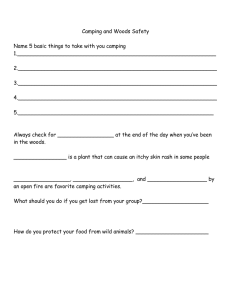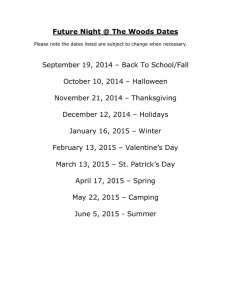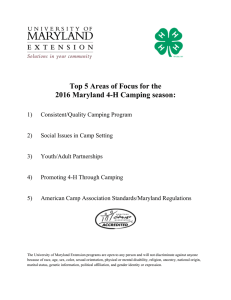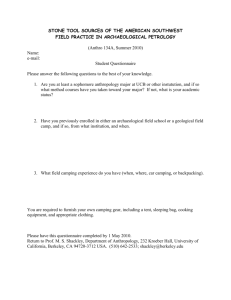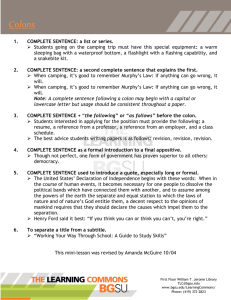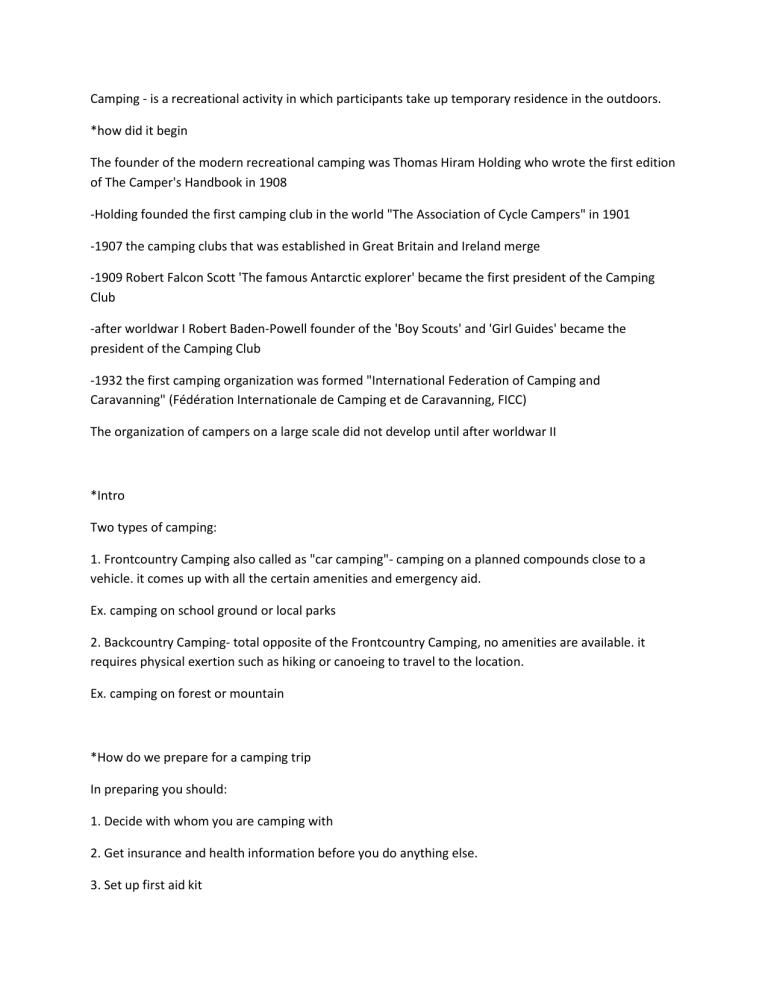
Camping - is a recreational activity in which participants take up temporary residence in the outdoors. *how did it begin The founder of the modern recreational camping was Thomas Hiram Holding who wrote the first edition of The Camper's Handbook in 1908 -Holding founded the first camping club in the world "The Association of Cycle Campers" in 1901 -1907 the camping clubs that was established in Great Britain and Ireland merge -1909 Robert Falcon Scott 'The famous Antarctic explorer' became the first president of the Camping Club -after worldwar I Robert Baden-Powell founder of the 'Boy Scouts' and 'Girl Guides' became the president of the Camping Club -1932 the first camping organization was formed "International Federation of Camping and Caravanning" (Fédération Internationale de Camping et de Caravanning, FICC) The organization of campers on a large scale did not develop until after worldwar II *Intro Two types of camping: 1. Frontcountry Camping also called as "car camping"- camping on a planned compounds close to a vehicle. it comes up with all the certain amenities and emergency aid. Ex. camping on school ground or local parks 2. Backcountry Camping- total opposite of the Frontcountry Camping, no amenities are available. it requires physical exertion such as hiking or canoeing to travel to the location. Ex. camping on forest or mountain *How do we prepare for a camping trip In preparing you should: 1. Decide with whom you are camping with 2. Get insurance and health information before you do anything else. 3. Set up first aid kit 4. Decide how long will you stay and figure out where will you sleep 5. Pack an appropriate amount of food 6. Gather all the things you'll need, pack them in a small lightweight bag 7. Don't overpack 8. Load everything in your car and hit the road tips- 8 things you should pack: 1. Warm clothes 2. Extra clothes and Rain gear 3. Trash bags 4. Lighter or matches 5. Cellphone car charger/power bank 6. First aid kit 7. Flashlight and extra batteries 8. Solar or hand craned radio Orienteering Important things to remember: -Whistle is used as communication in case of emergency -Leave wild life alone as responsible visitors of wild life habitats -Safety Azimuth -Bring a second compass incase something happens to your compass in the event
